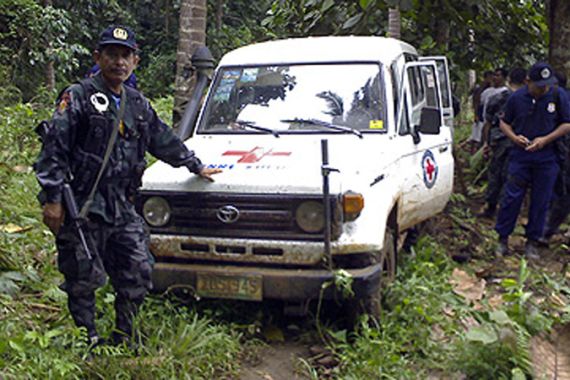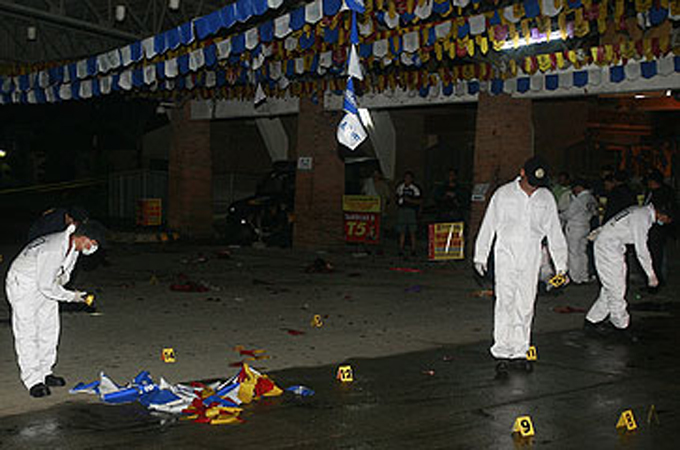Clashes erupt in southern Philippines
At least 15 killed in fighting after attack by suspected separatists on troops in Sulu province, officials say.

 |
| Separatists have been blamed for decades for many attacks in the semi-autonomous southern Philippines [EPA] |
At least 15 people have been killed in clashes between suspected separatists and government troops in the southern Philippines.
The fighting erupted after 50 men attacked troops guarding a school construction site and road project in the town of Talipao in Sulu province on Sunday, according to Romeo Tanalgo, a military commander.
Thirteen fighters and two soldiers were killed, while six other military personnel were wounded during two hours of fighting, Tanalgo said.
Randolph Cabangbang, a military spokesman, identified the attackers as members of the Awliyah, an armed group, which he described as a “radical” organisation with links to the Abu Sayyaf, another group that the Philippines classifies as a terrorist organisation.
Cabangbang said Awliyah fighters launched the attack in a bid to take control of the predominantly Muslim territory from the military.
Abu Sayyaf has been linked to the worst attacks in Philippine history, including a ferry bombing that killed more than 100 people in 2004.
For decades, Muslim separatist groups have fought for independence or an autonomous substate in the southern regions they say are their ancestral homelands.
The Moro National Liberation Front (MNLF) is the country’s main separatist group that signed a peace accord with the government in 1996 after it dropped its secessionist bid and settled for limited autonomy in the south. It is involved in ongoing peace talks with the government, and insists it has no ties to groups like Abu Sayyaf.
But most members of the MNLF, who complain that the Philippine government reneged on many political and economic promises under the 1996 pact, continue to be blamed for backing or carrying out violence in the country, according to the AFP news agency.